
A virtual consultation platform that allows eligible patients access to a medicinal cannabis service.
Canwell Australia.
The challenge.
The solution.
Services performed:
- UX research and design
- UI design
- Technical consulting, architecture and development
- Content creation
- Ongoing support and performance optimisation
- Transformation strategy
- UX strategy
- Content strategy
- Data strategy
- SEO strategy
- Growth strategy
- Online advertising, including PPC and social
- Lifecycle marketing
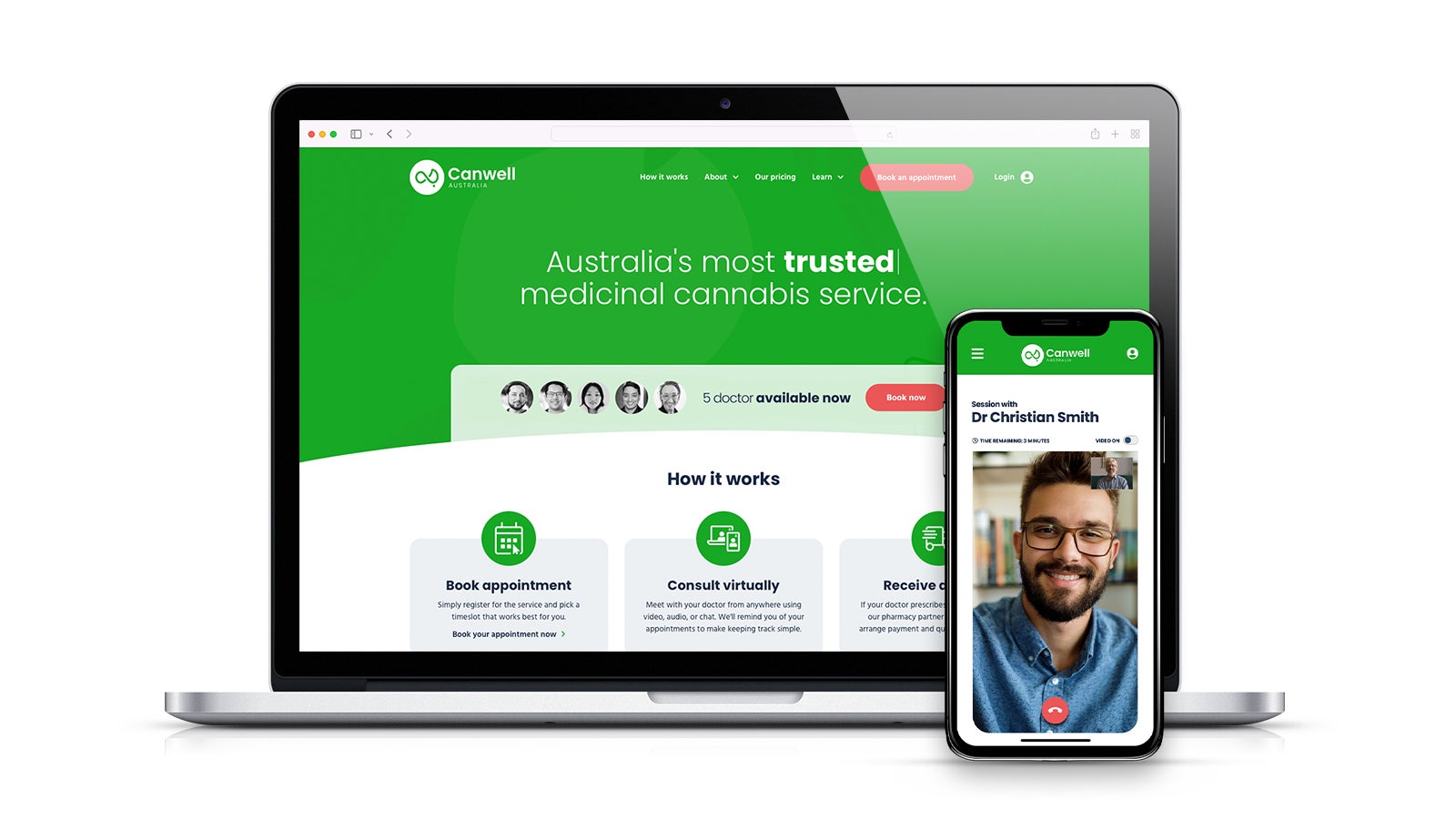
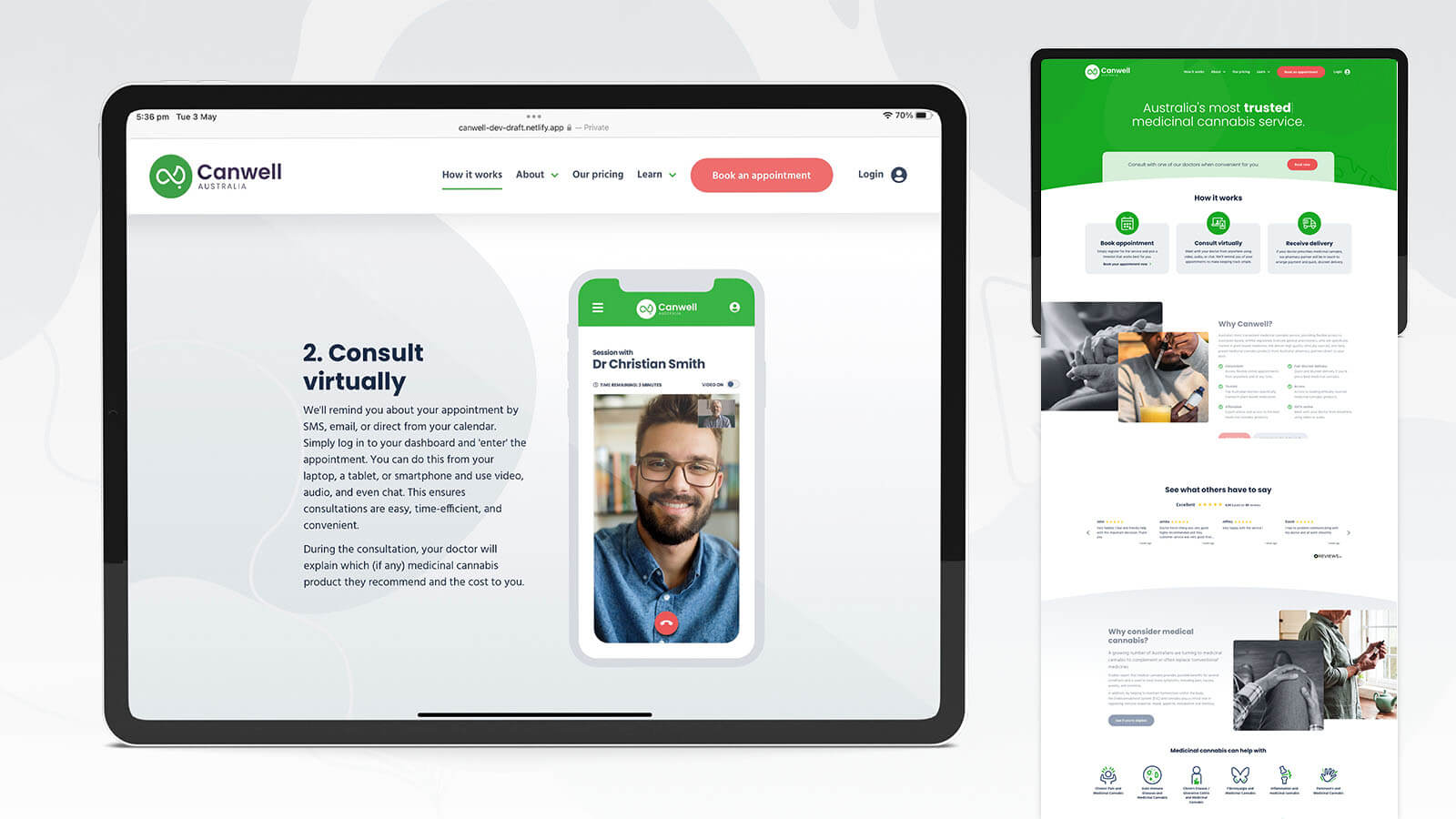
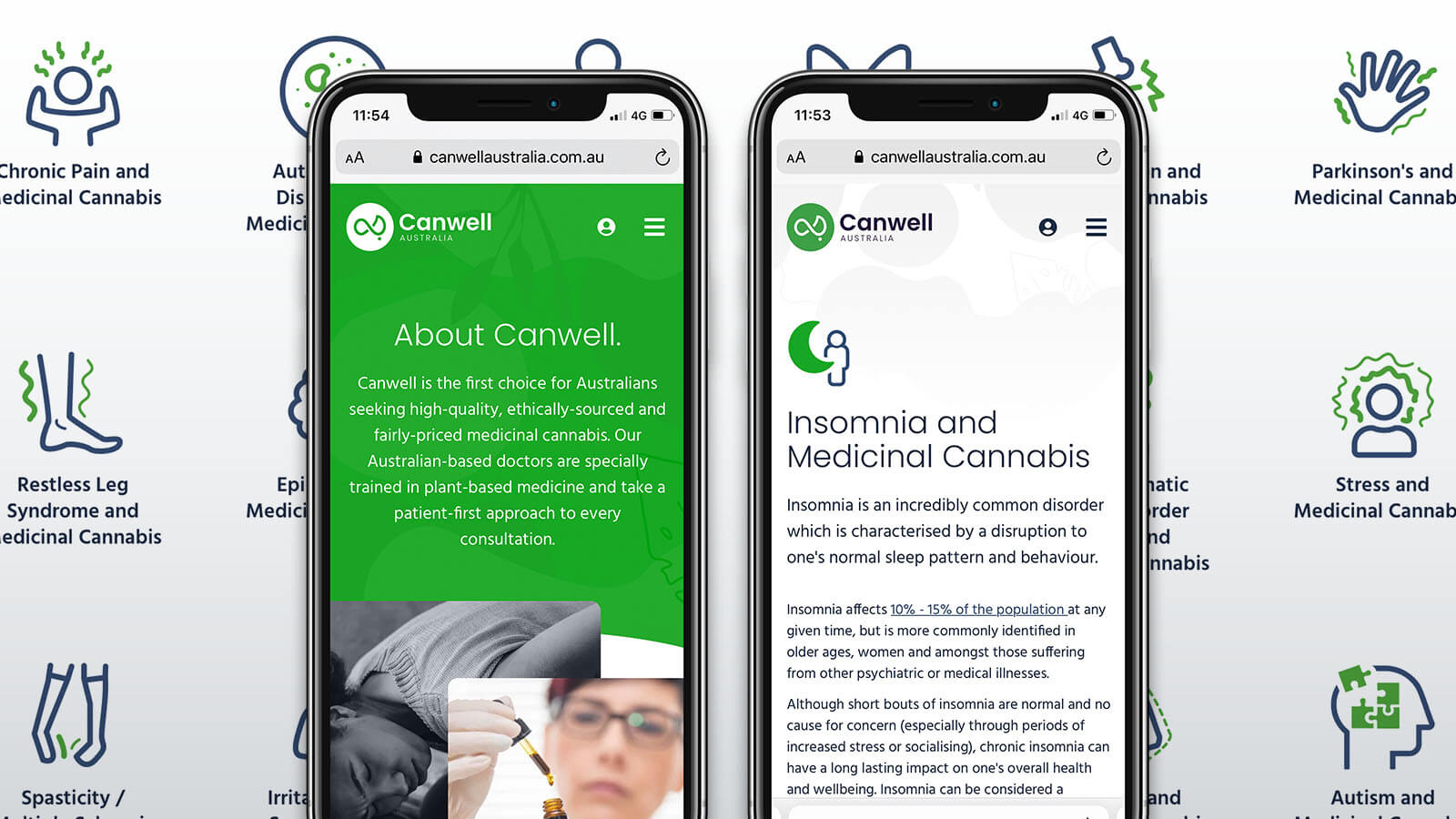
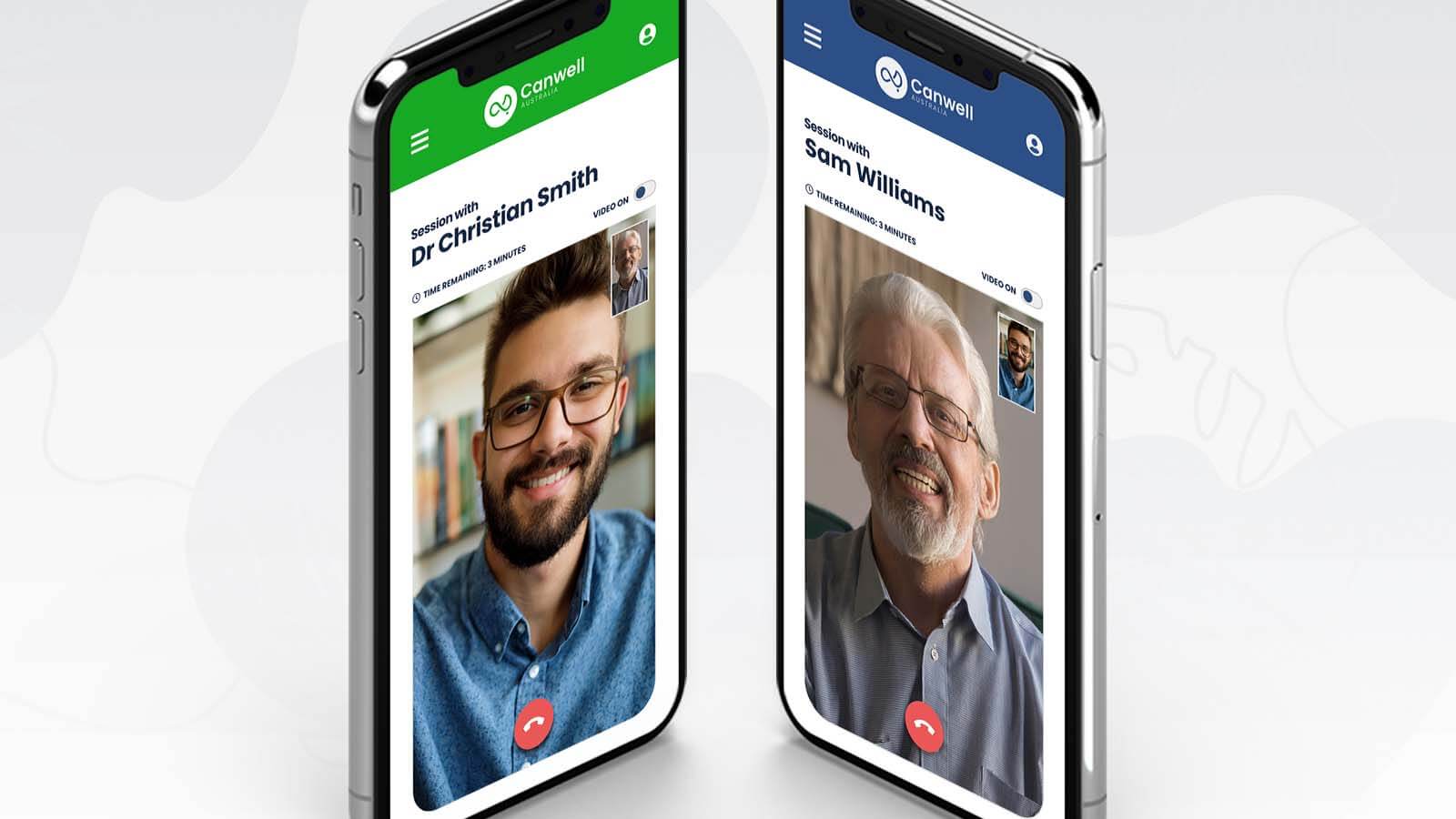
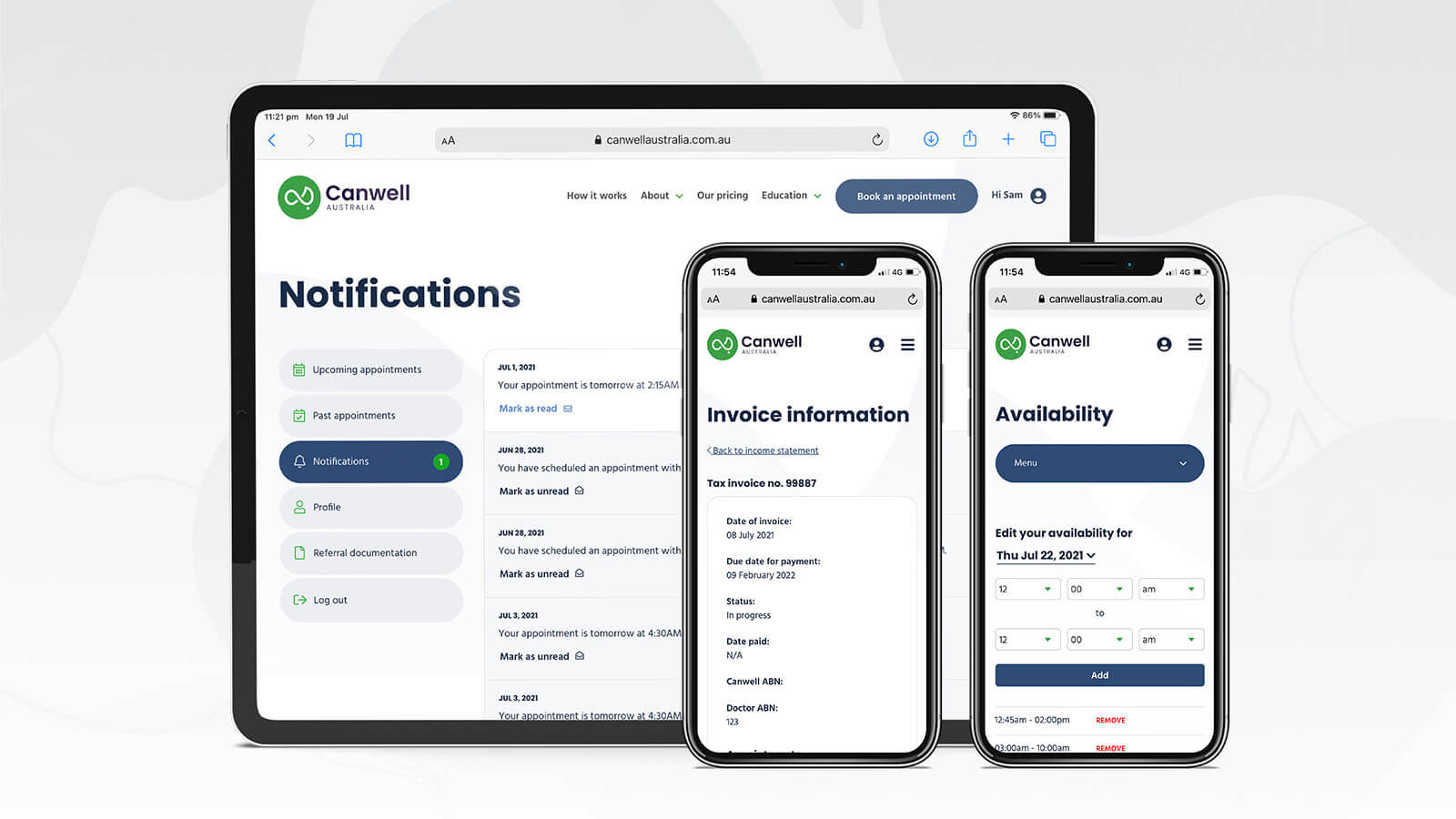



 Strategy.
Strategy.
 Development.
Development.
 Marketing.
Marketing.